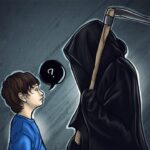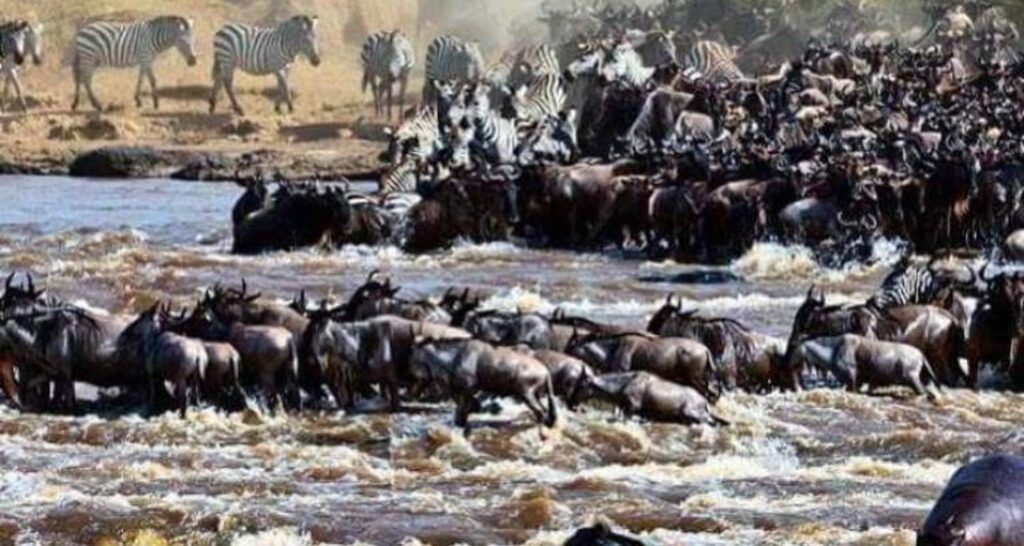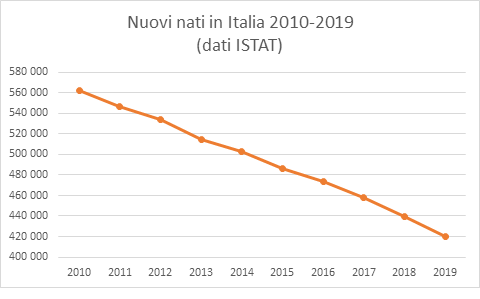For fear of dying, we stopped living

by Davide Gionco
The ongoing campaign of media terrorism around the covid-19 pandemic (because if it were correct information, it would be something else) relies on our survival instinct: if I know that a certain action involves risks for my safety, I avoid it . This is an attitude that works well in the case of an immediate danger, such as the risk of a road accident, but which does not always bring advantages in the case of situations that persist over time.
A classic example is that of smoking: everyone knows that smoking is bad and reduces life expectancy, however many smoke (for the record: I'm not a smoker), because they believe that smoking is a "pleasure of life", that it makes it more enjoyable, although perhaps shorter. Everyone knows that a healthy diet combined with regular physical activity is something that can extend life, but many people prefer to eat more flavorful (even if less healthy) foods and not tire themselves out playing sports, preferring other activities considered more enjoyable. Everyone knows that it is dangerous to travel, however many people travel, because traveling allows you to work, to visit loved ones, to enjoy some splendid corner of the world.
The famous philosopher Epicurus of Samos (341-270 BC) was rightly concerned with the role of pleasure in human life. We are not plants that have to survive, but people who want to live , fill their existence with pleasant experiences that make life worth living.
I met a lady who was terrified of "microbes" that could make her children sick. This is why he never let his children leave the house, to reduce the risk of illness. Eventually the children got sick anyway, once they became adults. And on the other hand they grew up as sad and unsocial people, because to avoid illness they had systematically avoided weaving social relationships.
The wildebeest of the savannah know that in order to live (feed, mate, reproduce) they will have to cross the other side of the river, where the green pastures await them. For this reason they do not hesitate to cross the river infested with crocodiles. They know that someone will die (who will fight not to succumb), but they also know that it is the price to pay to continue living.
And we humans, how have we shrunk after a year of pandemic and confinement measures?
We have reduced our social relationships to a minimum, precisely we who are the social species par excellence: closed at home to avoid the risks of contagion, without being able to joke (or cry) with friends, without being able to woo a girl we are with in love, without being able to attend the funeral of a deceased loved one (yes, we have come to this too), without being able to enjoy a work of art or a musical concert, without being able to go to the sea to enjoy the sunset on the beach.
These are activities defined as "non-essential", without which, however, none of us could live. If our parents had not fallen in love during "non-essential" activities (a dance, a beach holiday, in a pizzeria, all things now strictly prohibited in the name of covid …), they would not have brought us into the world and none of us today it would exist. Activities related to socialization are therefore more essential than ever for the existence of human beings and for the perpetuation of our species.
We are quitting making love. According to a study involving 500 Italians between the ages of 16 and 55, the stress generated by social terror and by confinement measures led to a decrease in sexual desire, with a consequent reduction in relationships. Is making love with the person you love an essential or non-essential activity?
We are quitting having children. In 2020 there were about 80,000 more deaths than the average, but no one pointed out that there were 160,000 fewer births than in 2010 (our estimate, pending official ISTAT data for 2020). This process of denatality has also been going on for many years, probably caused by the fears and uncertainties of the persistent economic crisis, because fewer and fewer young couples dare to invest in the future. If we rightly intend to save the elderly people we care about from covid-19, why have we given up on giving birth to new lives? The fact of not giving birth to children, who would certainly know how to fill the life of adults with joy, as well as guaranteeing a future for our society, means depriving oneself of fundamental affections for our existence, probably much more than affections are. towards elderly people whose life we will extend thanks to anti-covid measures.
Even if, of course, these are not comparable numbers, is it worth more to extend the life of elderly people by a few years or to have new children to replace them, as Mother Nature has foreseen? What sense does it make to implement anti-covid social restriction measures (combined with media terrorism) that make it possible to save a few tens of thousands of elderly people's lives, if this costs us, socially speaking, a reduction in the number of births of new children? In addition to social damage that is difficult to measure throughout society.
Every year in Italy about 70 thousand people die from the consequences of smoking (the "pleasure of life" mentioned above). No one is scandalized, yet we could avoid these deaths with an iron ban on smoking in Italy, which would certainly be much less devastating, from a social point of view, than the limitations imposed to avoid an excessive number of deaths from covid-19.
Approximately 40,000 people die in Italy every year from the consequences of alcoholism. Nobody is scandalized. Why is the consumption of alcohol not absolutely forbidden? This is not done, because alcohol, if taken in moderation, is one of the pleasures of life, but an absolute ban on alcohol would be less socially harmful than the current lockdown.
With the anti-covid restrictions we have essentially suspended any economic initiative: who can think (apart from Jeff Bezos, who is making money with online sales) of making economic investments in a period that brings all these uncertainties for the future?
Hope for a better future, what gives flavor to the life we live, has been killed. We have been reduced to vegetables to keep alive, whereas before we were people who lived.
Throughout its history, humanity has faced numerous pandemics, even much more serious than the current one, without ever ceasing to enjoy life, have children and invest in the future. The natural fear of dying has never led to stop living, reducing oneself to surviving. To the events of life, including wars and diseases.
This is not a cynical discourse, but the meaning and quality of our life: to what extent does it make sense that an entire society GIVES UP LIVING, for months and months, without prospects, just to reduce the incidence of one of the many causes of death among the population?
It is something that recalls the situation of people who have been kidnapped, imprisoned for life or held in confinement, who are reduced to living for the day, without being able to look to the future, without being able to dream of something that can give meaning to their life. Hope is reduced to waiting for the prison situation to end, with no idea of what will follow.
Coronavirus killed 80,000 in a population of 60 million in one year, which means 0.13% of deaths from this disease. If there had not been the restrictive measures, but they are measures aimed at protecting people at risk, we assume that we would have reached a mortality rate of 0.2% (120,000 deaths). Is avoiding the death of 0.2% of the population worth the price of the destruction of sociality, of the sense of life of the remaining 59,780,000 people?
Perhaps behind all this there is a selfish vision of life: we are afraid of dying, we are afraid that our loved ones will die. This is why we prefer to force everyone to stop living, to reduce our risk of having to suffer.
I too have experienced the death of loved ones due to covid, I too am careful not to infect people at risk, out of respect for the health of those people. But for this reason I do not feel entitled to lack respect for the vast majority of people "not at risk", depriving them of my contribution of sociability, of full life.
I hope that these reflections will help to overcome the sterile contrast "normal against deniers" or "vaccinists against antivaccinists". That's not the point. The point is that, without realizing it, we are becoming inhuman people, because we are repressing our humanity in the name of anti-covid prevention measures. Are we really sure that the price we will pay for it, in the end, is not much higher than what we have earned?

Thanks to our Telegram channel you can stay updated on the publication of new articles of Economic Scenarios.
The article For fear of dying, we stopped living comes from ScenariEconomici.it .
This is a machine translation of a post published on Scenari Economici at the URL https://scenarieconomici.it/per-paura-di-morire-abbiamo-smesso-di-vivere/ on Sat, 06 Mar 2021 17:42:36 +0000.


